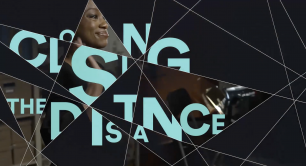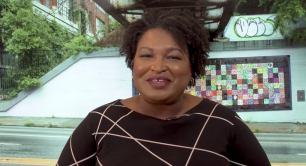SKOLL 2021: Redefine success, understand intersectionality – overcoming the barriers for women social entrepreneurs
Women social entrepreneurs around the world face considerable barriers despite being those working hardest to dismantle them. A panel of women at the Skoll World Forum discussed causes and remedies.
Achieving gender equality will take more than 135 years at the current rate of progress, according to World Economic Forum research. It is also widely documented that Covid-19 and its consequences have hit women hardest.
Women in social entrepreneurship also face major obstacles, despite being the ones who often disrupt patterns of gender inequality and overhaul unfair systems, said Pavitra Raja, a community specialist for social entrepreneurs at the World Economic Forum.
Raja was speaking on a panel at the Skoll World Forum on Wednesday, which took place online from 13-15 April.
Fellow panellist Diana Wells, president emerita at Ashoka, a global community of change leaders, said a key issue was how we defined success. Social entrepreneurs were often looked at through the lens of business success – the balance sheet, financial growth – which was very different to the outcomes they pursued – impact and system change. Social entrepreneurs should be the ones defining what success meant to them, she said.
She quoted an Ashoka survey conducted in 2018 that showed that women achieved social change as much as men. But one difference was that men tended to scale up geographically – like a regular business would – while women were “scaling deep”, changing mindsets and cultural norms, Wells said. “Changing norms and mindsets goes along with the way that women work. It also creates change over generations.”
Changing norms and mindsets goes along with the way that women work
Cheryl Dorsey, president of Echoing Green, a global nonprofit that supports emerging social entrepreneurs, said tackling gender inequality among social entrepreneurs needed an understanding of intersectionality – a concept developed about 30 years ago by civil rights advocate and scholar, Kimberlé Crenshaw.
“We're seeing the ways in which various forms of inequality often operate together and both compound and exacerbate one another,” Dorsey said. These issues were often mistakenly considered in isolation from one another. “You cannot compartmentalise these things... some of us are subject to a few or all of these, and we experience the totality of these different identities.”
We're seeing the ways in which various forms of inequality often operate together and both compound and exacerbate one another
Dorsey also underlined the funding gap faced by women founders, highlighting research from Echoing Green fellow Kathryn Finney, founder of Digital Undivided (a startup supporting the economic growth of black and Latino communities by helping female entrepreneurs). The study showed that investors discriminated against women social entrepreneurs when it came to perception of risk. The study found that the average black female-owned startup raises only about $30,000 in seed funding, versus an average startup which raises about $5m.
Latin America: hardly any women
Gisela Maria Bernardes Solymos, co-founder of the Centre for Nutritional Recovery and Education (CREN) in Brazil, shared her perspective as a social enterprise founder. She had never described herself as a social entrepreneur, she said, until she was named Social Entrepreneur of the Year by the Schwab Foundation. Even that only came after a member of her team convinced her to apply; she had always thought, “no, I do not have the profile”. She was the first solo woman to win the Schwab award in Brazil (previous female winners were part of mixed-gender teams).
And while she had appreciated connecting with like-minded people by joining networks such as Ashoka, she said she was struck by how few women were involved. She had attended courses in Harvard where there were hardly any women, and none from Latin America: “From Mexico down, there was just me,” she said.
The big problem we have is that in society, we try to fit patterns that are given to us from outside
One thing that helped Bernardes Solymos was being surrounded by a team and by friends who encouraged her when she started her organisation. “There are people who will look at us and say, ‘you are not capable’”, she said, so there was a lot of value in meeting “someone [who] looks at you for what you truly are”.
“I think maybe the big problem we have is that in society, we try to fit patterns that are given to us from outside,” she said. “And we should be able to... embrace how we are.”
Catch up on all our coverage of this year’s Skoll World Forum, or watch the highlights here.
Thanks for reading Pioneers Post. As an entrepreneur or investor yourself, you'll know that producing quality work doesn't come free. We rely on our subscribers to sustain our journalism – so if you think it's worth having an independent, specialist media platform that covers social enterprise stories, please consider subscribing. You'll also be buying social: Pioneers Post is a social enterprise itself, reinvesting all our profits into helping you do good business, better.




